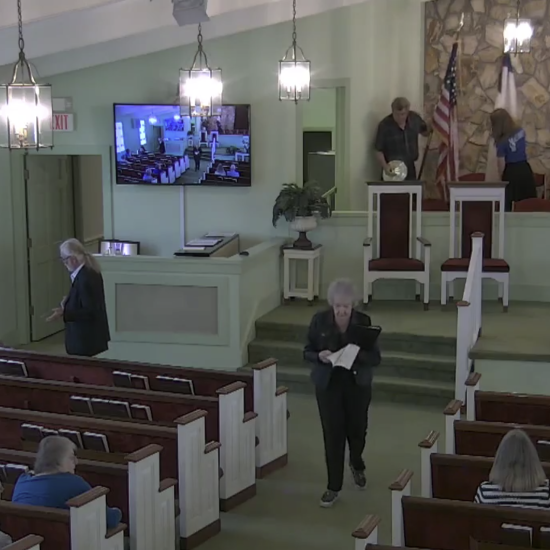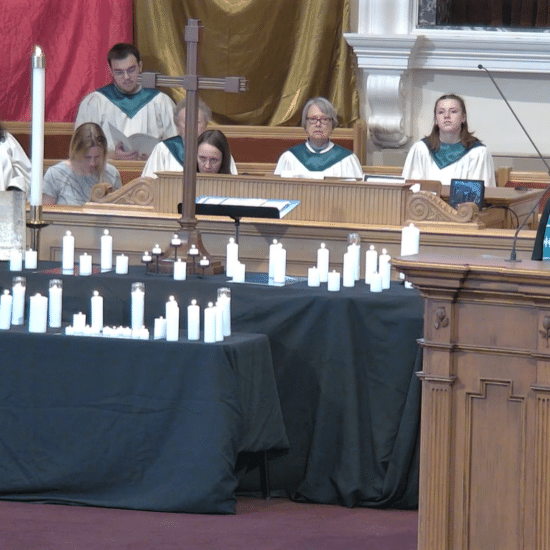One of the unfortunate realities about being Baptist is that you seldom understand or observe the Christian festival calendar. In fact, many who are reading this column will not know what a "festival calendar" is. For most Baptists, a festival is one of those those anti-Halloween parties that churches throw to get the little gremlins and goblins to the Family Life Center for apple-bobbing and beanbag-tossing.

Benjamin Cole
|
But the larger Christian tradition marks the calendar year with festivals designed to draw believers to reflect on significant moments in the life of Christ and his church. Sure, we Baptists know of Christmas and Good Friday and Easter. We even celebrate July 4th, and Memorial Day, and Thanksgiving, having transformed them into quasi-religious holidays complete with banners and musicals and dinner on the grounds. But we know little of Epiphany, Lent, Holy Wednesday or the day on which this is being published, Maundy Thursday. This, of course, is to our detriment.
On this Thursday before Good Friday, Christians of all colors and stripes celebrate three events on the last night our Lord spent with his apostles before the Crucifixion: the washing of the disciples’ feet, the suffering in the Garden of Gethsemane and the betrayal of Judas Iscariot. The English word “maundy” is derived from the Latin word mandatum, which is the Vulgate’s translation of Jesus’ words in John 13:34: “A new commandment I give unto you, that you love one another.”
So during this Holy Week, I’ve been trying to think more intentionally about the events of Christ’s Passion than I have in recent years. To be honest, this is the first year that I’ve celebrated Maundy Thursday. But hopefully that’s going to change.
On the night that Jesus called his disciples to the Upper Room for the institution of the Last Supper, he knelt down and washed their feet. It wasn’t as if he hadn’t been serving them for the previous three years. Doubtless, he had fed them, comforted them and ministered to them in ways they knew and didn’t know. But on that night as they gathered around a table to share this last meal, Jesus took a simple cloth and a basin of water and started to wash their feet.
I don’t think many of us know how humbling that must have been: to have the Lord of glory on his hands and knees washing our feet; to know that he was concerned about the dust between our toes, about our ceremonial cleanness and about our need to serve one another. As Jesus prepared them for this last meal, he washed them as if they were priests who were ordained to prepare a sacrifice. How little did they know that’s exactly what they were about to do.
As they left the supper, Jesus took them to the Garden of Gethsemane, where he asked them to watch and pray while he went further into the garden to be alone with the Father. It was there that he sweated the great drops of blood. It was there that the disciples slept, unaware of the cross that their Lord was to soon bear on their behalf.
There’s a mystery to the Garden of Gethsemane, something holy and silent and unseen. Like Abraham of old, the Father took his Son to a secret place where he prepared him for the slaughter. Except this time, there was no substitute. The cup could not pass to another. It was his and his alone to drink, and he drank it deeply.
And then there is the betrayal of the Christ by Judas Iscariot. The Gospel writers are careful to give us foreboding hints that we might identify the disciple who from his birth was ordained to such apostasy. In art and literature from every generation of Christian history, Judas is Kingdom enemy number one (or perhaps number two).
In Dante, it is Judas that occupies the lowest level of hell. In Rembrandt, a woeful Judas bows broken and rejected before the Sanhedrin as the coins of silver litter the ground. He is the dark shadow among the fellowship of the saints, a fly in the ointment of the redeemed. And yet, we find that our Lord is kind even to him, never hostile or bitter. We are forced to conclude that if Jesus is able to treat Judas like that, then surely we can treat men of lesser crimes with equal kindness and grace.
So on this Maundy Thursday, I have determined to celebrate with believers of more festive traditions as together we look toward the cross of Good Friday and the open tomb of Easter morn. And while the nation wonders if the economy will rise again or the various conflicts around the world will come to a resolution, I’m reminded of the One who rose from the grave and defeated the infernal foe, even death, to give men not what we deserved, but what we didn’t.
Benjamin Cole is a former Southern Baptist pastor who now works on public-policy issues in the nation’s capital.






